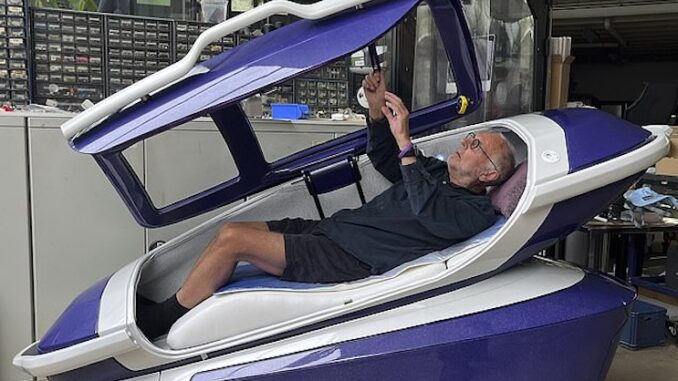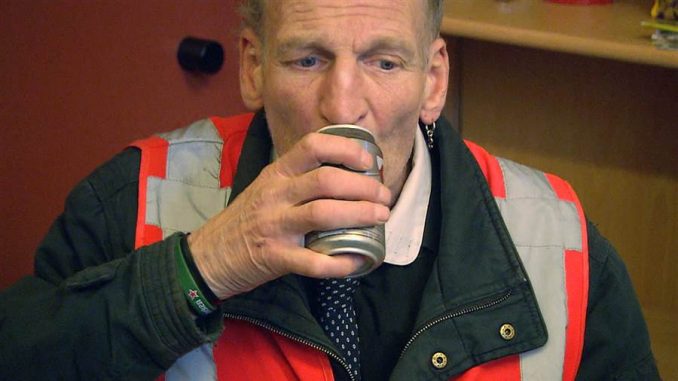Dutch Government Euthanized Nearly 10,000 Citizens in 2024, Including Alcoholics and Depressed
Fact checked by The People’s Voice Community

The Netherlands just crossed a chilling threshold: in 2024, nearly 10,000 people—including alcoholics and those battling depression—were euthanized, a record high that’s jolting the global debate over assisted death into overdrive.
According to a report by Bruno Waterfield in The Times on March 24, 2025, the country saw 9,958 euthanasia deaths last year—a 10% jump from 9,068 in 2023. That’s an 88% surge since 2014, painting a stark picture of a nation where ending life is becoming less exception and more routine.
But the numbers get darker. Waterfield revealed that 219 of those deaths were for psychiatric reasons alone—up from 138 in 2023 and a mere 88 in 2020. That’s a 59% spike in just one year and a staggering 250% climb over four years. Young people in mental distress are increasingly among the casualties, a trend that’s raising red flags worldwide. The Netherlands’ experience screams a warning: extending euthanasia to psychiatric cases opens a door that’s hard to shut.
Theo Boer, a Dutch health ethics professor and former euthanasia oversight committee member, isn’t mincing words. In a powerful piece for Le Monde on April 8, 2025, he urged France—and the world—to look at Holland and turn back.
Boer pointed out that euthanasia isn’t just growing; it’s morphing. The percentage of deaths by euthanasia rose from 5.4% in 2023 to 5.8% in 2024, with some regions hitting 15% back in 2017—a figure likely higher now. It’s no longer a last resort; it’s an option on the table. Even more chilling? ‘Couple euthanasia’—where partners or siblings die together—spiked 64% in 2024, totaling 108 deaths. Meanwhile, psychiatric cases soar, and dementia-related euthanasia climbs fast.
Boer’s take is blunt: “This is no longer a fluctuation; it’s a structural trend.” He warns that healthcare workers are starting to wonder where the line is—when does compassion turn into a reflex to kill? The Dutch government’s probing why the numbers keep rising, but here’s the kicker: they’re also mulling over expanding the law to let anyone over 74 request assisted suicide, no serious illness required. Age alone could be enough.
Canada’s watching closely—it’s set to greenlight euthanasia for psychiatric reasons by March 17, 2027. The United Nations Committee on the Rights of Persons with Disabilities has already slammed that plan, and the Netherlands’ data backs up their alarm.
Boer insists this isn’t just a Dutch quirk: every country that’s legalized euthanasia or assisted suicide sees the same relentless growth. Canada’s own euthanasia numbers have ballooned since it started; the slippery slope isn’t a myth—it’s a pattern.
RELATED: Netherlands Begins Euthanizing Alcoholics
So why rush down this road? Legalizing killing isn’t the only way to ease suffering. Refusing burdensome treatments is already a right, and real care—comfort, not death—can address the toughest cases. Boer and the data agree: once you normalize ending life, the boundaries stretch, the numbers climb, and the reasons multiply.
Holland’s 2024 tally isn’t just a statistic—it’s a siren. Killing isn’t compassion; it’s surrender. And as the elite scramble to keep their grip, the world’s got a choice: heed the warning or follow the fall.
Netherlands Begins Euthanizing Alcoholics
Fact checked by The People’s Voice Community

An alcoholic in the Netherlands has been euthanized by the state because he had “no prospect of improvement” and could not continue living as an alcoholic.
Mark Langedijk, who suffered from depression and anxiety, was allowed to choose the day of his death and was cracking jokes, drinking beer and eating ham sandwiches with his family hours before he passed away.
He was killed by lethal injection at his parents’ home on 14 July, according to an account of the ordeal written by his brother and published in the magazine Linda.
The Independent reports:
The Netherlands introduced a euthanasia law 16 years ago, which is available to people in “unbearable suffering” with no prospect of improvement.
Marcel Langedijk wrote his brother had a “happy childhood” and was loved by both his parents, and only found out he had an addiction eight years ago.
“I was particularly angry at Mark,” he said. “At first we did what most people do; help. My parents especially have done everything humanly possible to save Mark.”
His parents continued to believe in a “happy ending” despite eight years of help and 21 stints in rehab.
Eventually, Mr Langedijk told his family he wanted to die, but the family originally took the news with “a grain of salt”.
But his brother had no second thoughts. His application for euthanasia was approved by a doctor from the Support and Consultation on Euthanasia in the Netherlands.
On the day of his death, he “laughed, drank, smoked, ate ham and cheese sandwiches and soup with meatballs” until his doctor arrived at his parents’ home at 3.15pm.
His doctor explained the procedure, before telling Mr Landedijk to get into bed and to stay calm.
At this point, they all “started crying, my parents, everyone actually, even Mark”.
“We cried, told each other that we loved each other, that it would be all right, that we would care for each other, that we would see each other again, we held each other,” he said. “If it was not so terrible, it would have been nice.
“Mark’s eyes turned away, he sighed deeply. His last. Dr Marijke injected the third syringe. His face changed, lost color. My little brother was dead.”
More than 5,500 people ended their life using Holland’s euthanasia laws last year. One of those who died was a sex abuse victim who suffered severe anorexia, chronic depression and hallucinations.
Fiona Bruce, a Conservative MP, told the Daily Mail news of Mr Landedijk’s death was “deeply concerning and yet another reason why assisted suicide and euthanasia must never be introduced into the UK”.
“What someone suffering from alcoholism needs is support and treatment to get better from their addiction – which can be provided – not to be euthanised,” she added.
“It is once again a troubling sign of how legalised euthanasia undermines in other countries the treatment and help the most vulnerable should receive.”
Responding to Mrs Bruce, Marcel Langedijk told the Independent: “You can close your eyes to it and keep telling yourself everyone is curable but the fact remains, not everyone is.
“My brother suffered from depression and anxiety and tried to ‘cure’ it with alcohol. He’s from a normal family, he did not want this to happen. He did not take an easy way out. Just a humane one.
“If that’s troubling for Mrs Bruce that’s a pity. I am just glad my brother did not have to jump in front of a train or live a few more years in agony before dying of his abuse.
“Alcoholism and depression are illnesses, just like cancer. People who suffer from it need a humane way out.
“It’s not like we go around killing people in Holland. It took my brother a year and a half and many struggles to get it done.”




